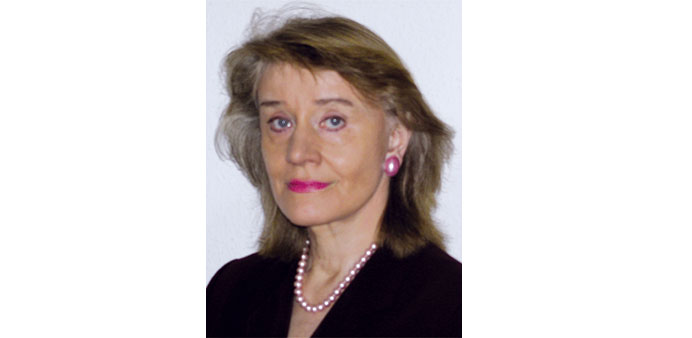By Denise Marray
Gulf Times Correspondent
London
The State of Qatar is important to Germany both economically and politically as a stable and strategic partner in the Near and Middle East region.
Germany, the powerhouse economy of Europe, accounts for 7.3% of Qatar’s foreign trade. Gulf Times spoke to Helene Rang, CEO of NUMOV, to get an overview of the strong commercial ties between the two nations.
Founded in 1934, NUMOV, the German Near and Middle East Association, is Germany’s oldest and largest non-profit and independent service provider for the Near and Middle East region.
A breakdown of exports shows that Germany’s automotive sector accounts for 25.8% of its exports to Qatar, followed by machinery (20.8%), chemicals (10.8%) and electrical engineering (9.45).
German expertise can be found in several large scale projects in Qatar; for example, the Herrenknecht AG delivered 15 tunnel-boring machines for the Doha metro network in 2014.
Herrenknecht is the leading provider of holistic technical solutions in mechanized tunnelling, building on the experience of more than 2,600 projects worldwide, for all diameters, in all geologies and in all areas of application — railway, metro, road, utility, pipelines, hydropower, mining and exploration.
Looking at Qatari investments in Germany, the reach is across a broad range of sectors.The most prominent examples are Qatari holdings in leading German companies such as Volkswagen (15.6% stake), construction company, Hochtief (11.1% stake, as of March 2014) and Siemens (approx. 3%, as of 2012).
In addition, Qatar acquired a stake in German solar panel company SolarWorld in 2014 as well as in Deutsche Bank AG.
Qatar has also established a rich portfolio in the real estate sector of Germany; for example, the prominent Grand Hyatt and Maritim hotels in Germany’s capital, Berlin.
In the healthcare sector, Qatar has a co-operation agreement with Germany’s Vivantes.
Germany, Rang explained, is an attractive market for Qatari investments for three key reasons.
First, is the structure of the economy: exports are driven by Germany’s backbone of highly innovative small and medium-sized enterprises (SMEs). These constitute 99.6% of all companies that employ 62% of all employees in Germany. Many of these SMEs are world market leaders in their respective niche segments. Together with internationally leading companies — such as Bayer, BASF, Daimler, Volkswagen, and Siemens to name but a few — they make up Germany’s manufacturing industrial base
As Rang pointed out this structure is attractive because: “Investments do not necessarily have to target a small share of large corporations, but can be spread easily and with a higher impact.”
Second, Germany is an excellent base from which to access not just central Europe but the whole of the EU. Investments can serve both Europe’s largest domestic market as well as neighbouring countries.
Third, the German economy is stable with a good track record; local issues have had comparably little impact on its strength in the international market.
“German exports are comparatively stable, because the German economy is always looking to expand its products to new or emerging markets, which mostly have low political and economic risks. Despite ups and downs in certain sectors (like the automobile industry), export volumes level out in the end with political mechanisms supporting the German economy,” Rang said.
Germany primarily imports liquid natural gas from Qatar, an estimated 60% share of its overall Qatari imports. Qatar mainly imports cars and car parts, alongside machinery and chemical products. Qatari investments in Germany amounted to €15.7bn in 2013.
An investment promotion and protection agreement and an air transport agreement between Germany and Qatar have been in force since January 1999. German companies are mainly active in plant manufacturing, construction, and to an increasing extent in the service sector. Experts see yet more potential for German companies in Qatar, especially in chemicals, engineering, and the environmental and medical technology sectors. A prominent and important example for Qatari-German cooperation is the Qatar German Business Forum, established in 2000 under the umbrella of NUMOV, the German Near and Middle East Association. Former chancellor Gerhard Schröder is the honorary chairman.
Since 2007, there has been an annual German-Qatari Joint Economic Commission, which was held in Qatar for the first time in 2012. A double taxation agreement is still in negotiation after a lengthy delay.

Rang: Prominent player.
